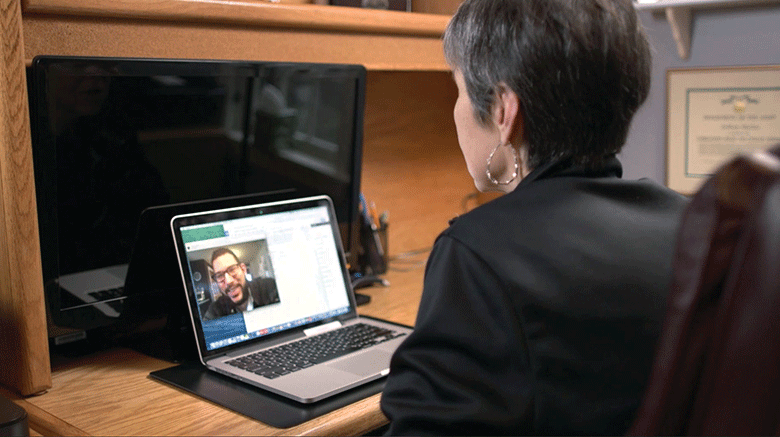While medical experts have said that social distancing, or staying at least six feet away from other people, is one of the most vital steps in preventing the spread of the novel coronavirus, it’s still important for people to find ways to stay socially engaged with their friends and family.
In fact, the World Health Organization recently made the switch from saying social distancing to physical distancing in order to encourage people to remain connected during this time.
“Human beings depend on others to meet all of their needs — physically and mentally —from the moment they are born,” said Mirella Landriscina, Ph.D., professor and associate chair of social sciences at St. Joseph’s College.
“As we try to get through this pandemic, think of all the people we are ‘depending on’ without fully realizing it,” she continued. “Meme-makers on Twitter and young people on TikTok are keeping us laughing. Novelists who have written great books in the past are giving us temporary escapes from stress. Various producers, directors and actors have created television shows and films that are helping us while we spend time at home.”
Dr. Landriscina offered these five tips to remain socially engaged — and socially responsible — while staying physically distant:
1. Stay engaged through social media.
There are so many positive articles and video clips — and even silly memes and made-up dances — that people are sharing on Facebook, Twitter, Instagram and TikTok that can help add some happiness to your day. But keep track of your own feelings. If you notice scrolling through social media is giving you more anxiety, take a break.
2. Use tools such as Zoom, FaceTime, Skype or Google Hangouts to schedule virtual get-togethers with family and friends.
It’s important to connect on a deeper level, rather than just texting and emailing. See the faces of your loved ones, and laugh together over a virtual dinner, boardgames, dance parties and viewing parties. Just being able to see one another makes a big difference for us as social beings.
3. Reach out to family and friends you haven’t spoken to in a while.
Pick up your phone and call your loved ones near and far. Talk to your cousin you don’t get to see as much as you’d like, or your great uncle in Canada. Pick up the phone and check in on them. This will help both them and you feel better mentally.
4. Learn about different ways you can safely volunteer your time and talents.
There are so many people struggling to get necessities during this time. Whether it’s your elderly neighbor, an immunocompromised friend, local health care workers or the homeless, see what you can do to help those in need.
“The New York Times recently published an article about how people across the country are sewing masks at home for health care workers,” Dr. Landriscina said. “There are also many community organizations finding safe ways for people to volunteer. For example, some of these organizations allow you to sign up to conduct ‘wellness checks’ on isolated seniors by just calling them on the phone.”
5. Become more politically involved and reach out to our leaders.
“Ask them to address problems like poverty, homelessness, growing inequality, our health care system and the lack of policies guaranteeing workers paid sick leave,” offered Dr. Landriscina. “By making certain groups vulnerable to sickness, these problems have made us all vulnerable. We need to be more active citizens to ensure we have the types of policies that will benefit us all.”

